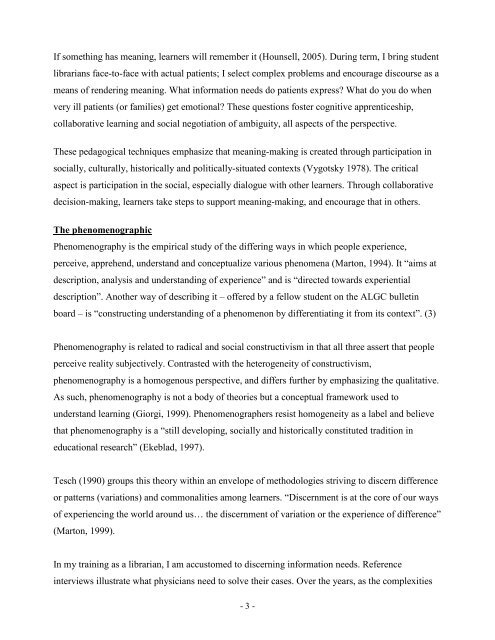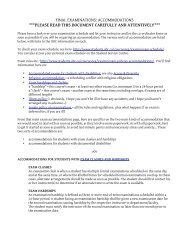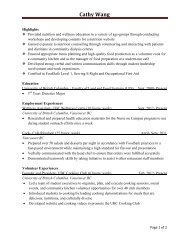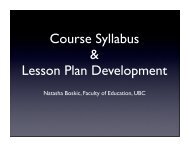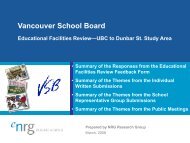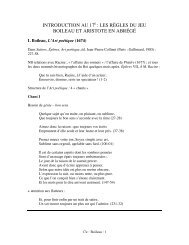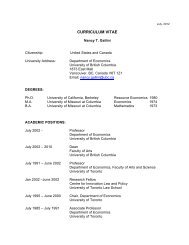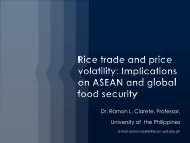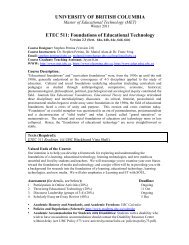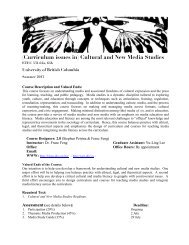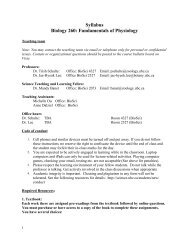adult learning theories - UBC Blogs - University of British Columbia
adult learning theories - UBC Blogs - University of British Columbia
adult learning theories - UBC Blogs - University of British Columbia
- No tags were found...
Create successful ePaper yourself
Turn your PDF publications into a flip-book with our unique Google optimized e-Paper software.
If something has meaning, learners will remember it (Hounsell, 2005). During term, I bring studentlibrarians face-to-face with actual patients; I select complex problems and encourage discourse as ameans <strong>of</strong> rendering meaning. What information needs do patients express? What do you do whenvery ill patients (or families) get emotional? These questions foster cognitive apprenticeship,collaborative <strong>learning</strong> and social negotiation <strong>of</strong> ambiguity, all aspects <strong>of</strong> the perspective.These pedagogical techniques emphasize that meaning-making is created through participation insocially, culturally, historically and politically-situated contexts (Vygotsky 1978). The criticalaspect is participation in the social, especially dialogue with other learners. Through collaborativedecision-making, learners take steps to support meaning-making, and encourage that in others.The phenomenographicPhenomenography is the empirical study <strong>of</strong> the differing ways in which people experience,perceive, apprehend, understand and conceptualize various phenomena (Marton, 1994). It “aims atdescription, analysis and understanding <strong>of</strong> experience” and is “directed towards experientialdescription”. Another way <strong>of</strong> describing it – <strong>of</strong>fered by a fellow student on the ALGC bulletinboard – is “constructing understanding <strong>of</strong> a phenomenon by differentiating it from its context”. (3)Phenomenography is related to radical and social constructivism in that all three assert that peopleperceive reality subjectively. Contrasted with the heterogeneity <strong>of</strong> constructivism,phenomenography is a homogenous perspective, and differs further by emphasizing the qualitative.As such, phenomenography is not a body <strong>of</strong> <strong>theories</strong> but a conceptual framework used tounderstand <strong>learning</strong> (Giorgi, 1999). Phenomenographers resist homogeneity as a label and believethat phenomenography is a “still developing, socially and historically constituted tradition ineducational research” (Ekeblad, 1997).Tesch (1990) groups this theory within an envelope <strong>of</strong> methodologies striving to discern differenceor patterns (variations) and commonalities among learners. “Discernment is at the core <strong>of</strong> our ways<strong>of</strong> experiencing the world around us… the discernment <strong>of</strong> variation or the experience <strong>of</strong> difference”(Marton, 1999).In my training as a librarian, I am accustomed to discerning information needs. Referenceinterviews illustrate what physicians need to solve their cases. Over the years, as the complexities- 3 -


